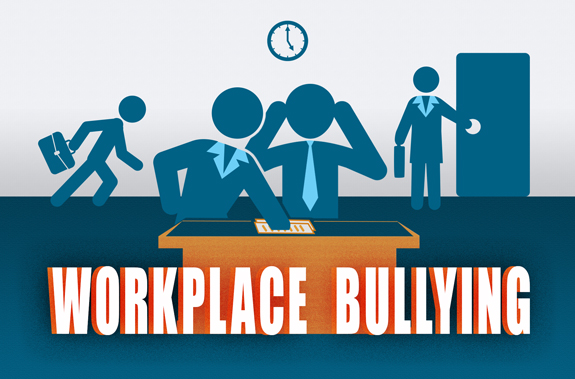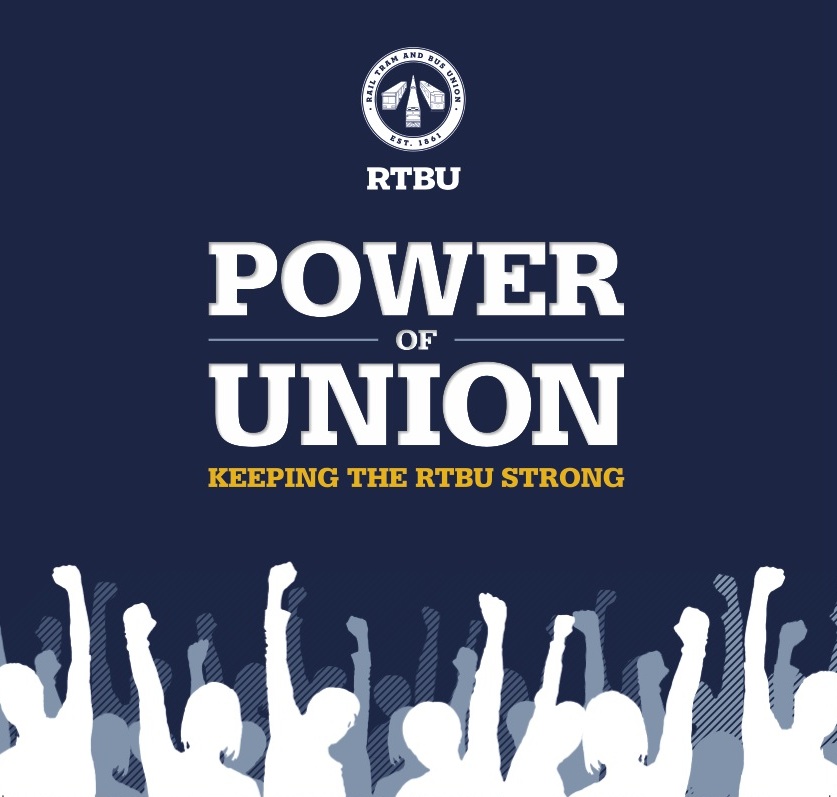Bullying is repeated and unreasonable behaviour that creates a risk to health and safety.
Bullying behaviour can be as direct as making threats, swearing at or abusing a worker, physical stand over tactics, or sexual harassment. It may also be more subtle and indirect.
Bullying behaviour may take the following forms:
• aggressive or intimidating conduct;
• belittling or humiliating comments;
• spreading malicious rumours;
• teasing, practical jokes or ‘initiation
ceremonies’;
• exclusion from work-related events;
• displaying offensive material;
• pressure to behave in an inappropriate
manner;
Bullying occurs when:
• a person (or a group) repeatedly behaves
unreasonably towards a worker (or a group) at
work; AND
• that unreasonable behaviour creates a risk to
health and safety.
Men and women at all levels of employment can be affected by bullying. Bullying behaviour can adversely affect the health and wellbeing of workers and may lead to stress-related illness, mental health issues, and possibly workers’ compensation claims.
Confronting a workplace bully can be a difficult and stressful task. So, what can you do?
Workplace Strategies
The most effective, pro-active, and collective way to respond to bullying in the workplace is to look at strategies you can implement directly in the workplace. The stronger the anti-bullying message in the workplace, the less likely you are to have a workplace bully.
What strategies can be put in place in your workplace to deal with bullying in a supported and collective environment?
If you feel you can, speak with the person who is bullying you
Ask for a meeting, choose a quiet and confidential location. Think about what you are going to say before the meeting and keep notes during the discussion. Clearly state the purpose of the meeting, for example, “I’d like to discuss how we communicate with each other”. Try to stay calm and professional at all times. If the person becomes aggressive then thank them for their time and end the meeting. Ask your Union Delegate or Organiser to assist with this.
Keep a diary of incidents
Record details of interactions that you believe are bullying. Make sure you include the date, time, and any witnesses to the incident. You could also record incidents in your workplace HSE forms. Speak to your RTBU Delegate or Organiser about using your RTBU diary as a way of keeping records.
Put the bullying issue on the workplace agenda
Start by talking to your colleagues about bullying. Hold a meeting (away from the workplace, if necessary). Approach your employer about holding ‘awareness raising’ sessions. Distribute information that profiles unreasonable behaviours and highlights bullying as a health and safety issue. Maybe put up some posters in the workplace. Your Union Organiser can help by providing you with relevant materials.
Enterprise Bargaining Agreements
Ask other members to support making fair treatment in your workplace a part of your log of claims to raise bullying behaviours as a serious occupational safety and health concern. Ask your Organiser or RTBU Delegate about this.
Dispute Settlement Procedures (DSP)
Deal with complaints about bullying through your existing Dispute Settlement Procedure in your Union Collective Enterprise Agreement or Award. If you start the procedure, your employer is required to respond to your complaint in a timely manner. If your Enterprise Agreement has a DSP that does not cover all employment matters, then become involved and fix the Agreement when it is renegotiated. Speak to your RTBU Delegate or Organiser about this.
The Legal Framework
There are some ways of effectively dealing with bullying within the existing legal framework.
The Occupational Safety and Health Act 1984 – seeks to promote and secure the safety and health of persons at work. Under the Act, workers have a right to elect a Safety and Health representative to represent their interests in the workplace. Bullying is a health and safety issue and the RTBU can help you to set up a proper OSH Committee in your workplace which can deal with bullying matters. Speak to your RTBU Delegate or Organiser about this.
The Equal Opportunity Act 1984 – prohibits sexual harassment, racial vilification or less favourable treatment related to certain personal characteristics (such as age, physical or intellectual impairment, race, sex, family responsibilities and marital status). The Act requires employers to maintain a discrimination-free working environment. If a complaint is lodged with the Equal Opportunity Commission, the employer is liable for their own unlawful action and/or that of their employees, unless they can show they had taken all reasonable steps to prevent discrimination.
The Criminal Code – prohibits assault or threats of assault and could be used in extreme cases of bullying, i.e. where a worker is being subjected to, or threatened with, physical aggression. While this legal framework exists, it is important to be aware that the law is limited in what it can achieve. It is reactive, not proactive. This means that a serious incident would have to occur (such as a physical assault or an unfair dismissal) before any action can be taken. Taking the legal route may be costly, in terms of time, money and stress.
The RTBU believes that bullying issues are best resolved in the workplace by taking assertive and collective action. Your Union Delegate or Organiser can assist you to develop strategies and responses that are relevant to your workplace.
In Unity,
Joshua Dekuyer




